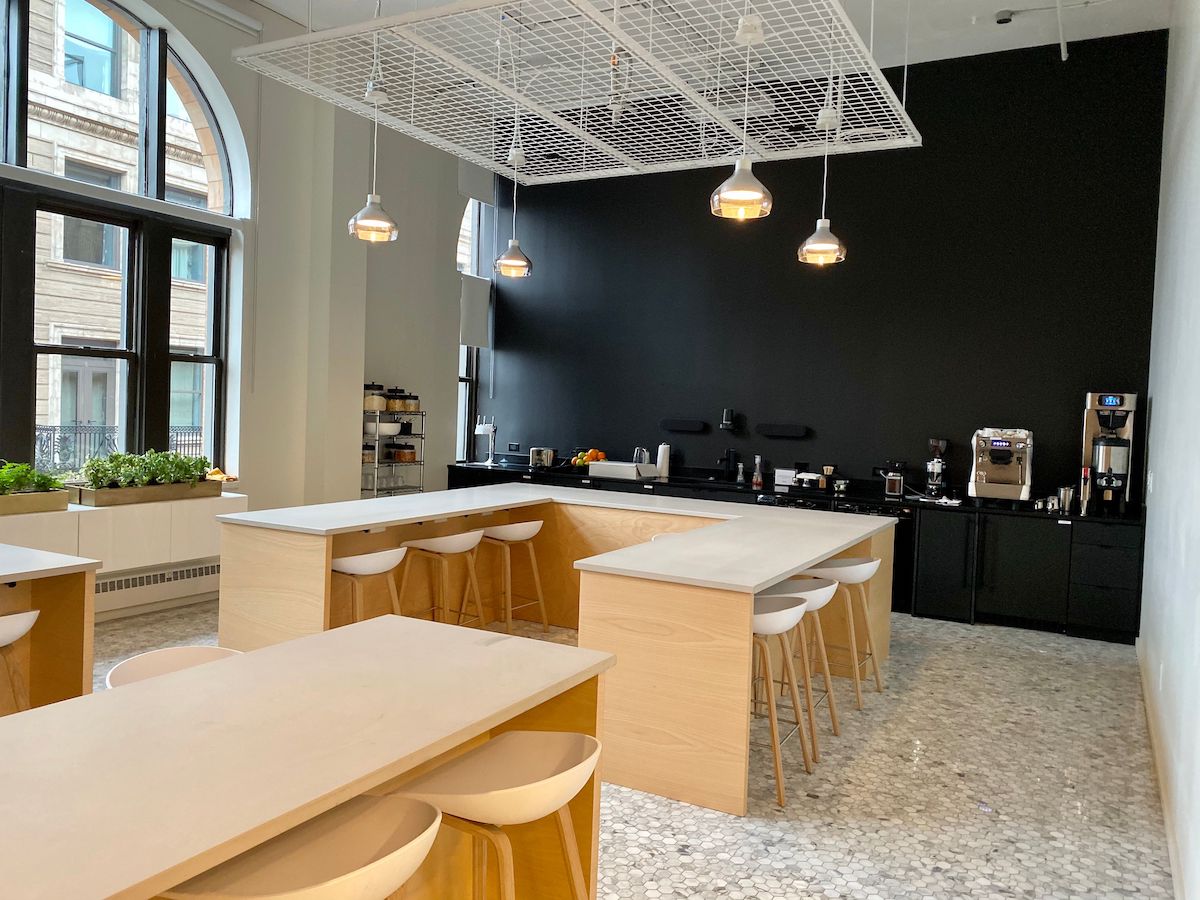The working world is at an inflection point when it comes to the future of the office — how to return, when to return and ultimately whether to return at all.
Employees at many major corporations are calling for permanent work-from-anywhere agreements or flexible hybrid models, with a promise to resign if their demands aren’t met. But companies shouldn’t say goodbye to office life so quickly, given the notable benefits that in-person collaboration and camaraderie offer after a year-plus inside of a screen.
We believe one of the highest leverage ways to support company culture is through how we design, build and ultimately program our physical space for staff. We see ourselves as part of the vanguard that is working back toward the global goal of collective health, wellbeing and productivity. Here’s how you can keep employees engaged in the transition back to the office:
Plan your return intentionally
For startups in a growth phase focused on building out functions and teams, the in-person environment is key to onboarding new employees and aligning them with your organization’s vision and culture. Working at Piano remotely over the last year has been specifically challenging as we’ve grown from just over 300 to more than 600 staff — many of whom have met their teammates exclusively over Zoom.
When we saw that it would be possible to return, we knew it would create two opportunities: first, to alleviate the stress our staff was feeling trying to manage a hyper-growth business without physical proximity to their peers, and secondly, to manifest a new competitive advantage for us as other companies hesitated to return.
So we acted quickly, setting a 30-day timeline and diving in on an employee-by-employee basis to help them manage whatever concerns they might have about coming back — child care, parking, flexible hours, helping them get vaccination information — whatever it took. Our vaccinated employees returned to our 10,000-square-foot space at The Bourse building in Old City, Philadelphia eager to take advantage of the purpose-built atelier we designed to foster creative and productive collaboration around software. And for those who were not vaccinated or were unable to return, we created accommodation plans that we revisit on a monthly basis.
It’s critical to be intentional with your physical return plan and clear with your goals and expectations of staff. We communicated throughout the pandemic that our intention was to get back to the office as soon as it was safe, and now that travel is coming back, we find our staff is eager to be in their local offices so they can meet their colleagues from our 17 global offices when they pass through in person.
Take stock of office amenities
Over the last year and change, employees have adapted to a completely different work environment. For some, it’s been complete insanity with children, pets and partners sharing their home-turned-office space with them every day. For others, it’s been a welcome change with a constant flow of their favorite coffee and snacks and padding around their cocoons in socked feet.
As you consider a return to work in person, take stock of what your office offers — and not just what’s left in your storage closet from March 2020. The space we designed to be the headquarters for our fast growth and expansion is lined with floor-to-ceiling whiteboards, a library filled with design-inspiration books, several living room spaces that are as nice as what staff would have at home, and an internal cafe with professional espresso and coffee machines.
Not every company has those opportunities, but we have felt from the beginning that those investments in physical space boost morale and impact, and we believe so more than ever.
We also decided to provide lunch to our employees in the office each day, and the benefits are threefold. Most obviously, everyone can take one step out of their morning routine when they know there’s a great meal waiting for them come lunchtime. That’s already a win! More importantly, when there’s a shared lunch time, employees don’t eat on a staggered schedule or take their meals back to their desks. They actually sit in our kitchen and talk to one another, building relationships beyond the day-to-day work we do helping our clients activate their online audiences. And as an added benefit, it’s been a pleasure to work with local businesses around our office and support the local restaurants we know and love.
Take the pulse of what your employees value, which very well might have evolved over last year, and line it up with your company values and trajectory. Understand what your employees need to feel more comfortable and be most productive and match those against what you can uniquely offer in your space.
Make room for flexibility
Most employees don’t want to work from home forever. The reason they may be hesitant about returning to the office is the anticipation of a rigid schedule between working hours and the commute, which can also impact their personal lives and obligations. But despite the trends, you might be surprised how employees respond when you treat them with respect and understanding that they need flexibility in their schedules.
We’ve always been flexible with employees, so this piece was a no-brainer for us and nothing new for our longtime staff. It’s a fact of life that people might need to come in late after an appointment, or leave early to pick up a sick child from school or attend a class program. Others may not yet be ready to commute by train or bus again, so you might consider covering the cost of parking. Even when you’re back to operating in your physical space, like we are now, allowing employees the flexibility to handle their lives outside of work and being open to creative ways to make it all work better gives your team peace of mind and reaffirms that sense of shared mission that will make us all better off in the long run.







